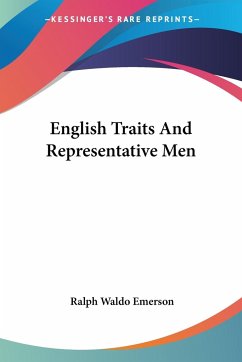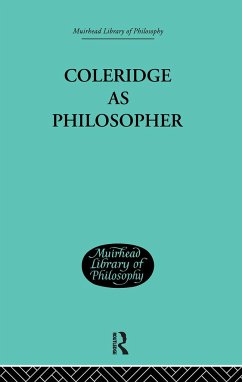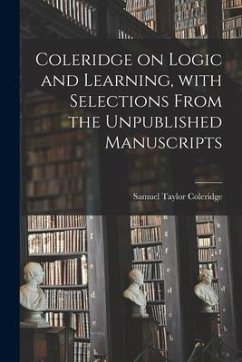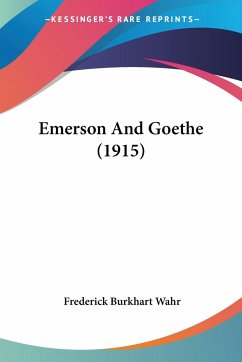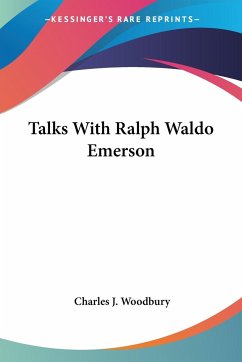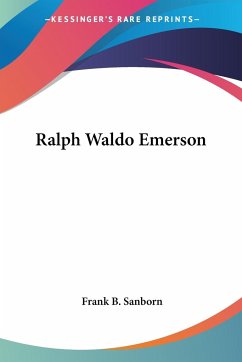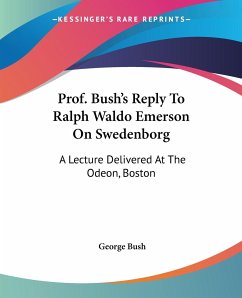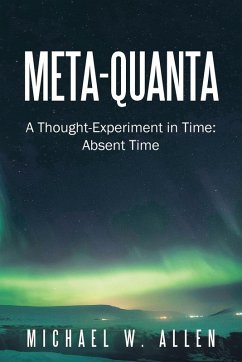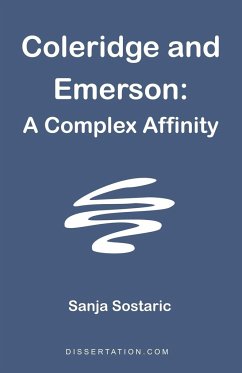
Coleridge and Emerson
A Complex Affinity
Versandkostenfrei!
Versandfertig in 1-2 Wochen
33,99 €
inkl. MwSt.

PAYBACK Punkte
17 °P sammeln!
This work elaborates R. W. Emerson s modification of S. T. Coleridge s central philosophical-aesthetic notions, such as imagination, reason, genius and symbol. Although Kant s and Schelling s idealistic philosophy, various pantheistic theories and Neoplatonism are identified as Coleridge s and Emerson s congenial intellectual and spiritual background, the author draws yet more attention to subtle differences between the English Romantic Coleridge and the American transcendentalist Emerson, which allow us to recognize that we deal with two distinct philosophical and poetic theories. It is shown...
This work elaborates R. W. Emerson s modification of S. T. Coleridge s central philosophical-aesthetic notions, such as imagination, reason, genius and symbol. Although Kant s and Schelling s idealistic philosophy, various pantheistic theories and Neoplatonism are identified as Coleridge s and Emerson s congenial intellectual and spiritual background, the author draws yet more attention to subtle differences between the English Romantic Coleridge and the American transcendentalist Emerson, which allow us to recognize that we deal with two distinct philosophical and poetic theories. It is shown that Emerson, neglecting flatly Coleridge's careful distinctions aimed at preserving the balance between dualism and monism, resolves Coleridge's theoretical ambiguity by exclusively concentrating on the part of Coleridge's system which favors the irrational and the unconscious dimension. As a consequence, Emerson's philosophy and aesthetics, with their emphasis on reason and imagination understood as inspiration, that is, the inflow of the divine into the mind of the artist, represent a radicalized version of Coleridge's neatly supressed monistic tendencies. In Emerson's interpretation, Coleridgean imagination becomes equated with Plotinian soul, that is, Coleridgean reason becomes a synonym for the utter mystical depersonalization. Finally, the delicate and easily overlooked Emersonian shifts with regard to Coleridge's theory point at the significance of Emerson's theoretical solutions in the transition from romanticim to modernism, a transition to which, ironically enough, Coleridge himself unintentionally and indirectly gave valuable contribution.





